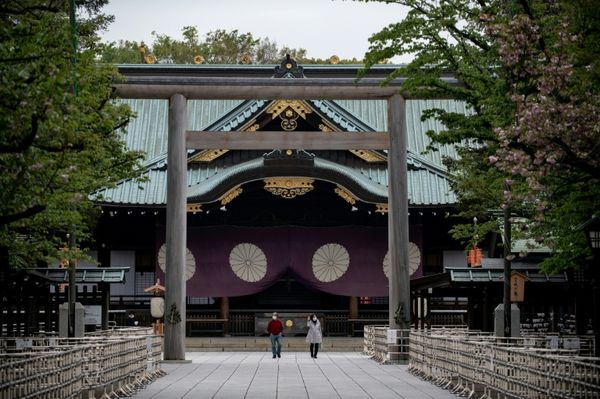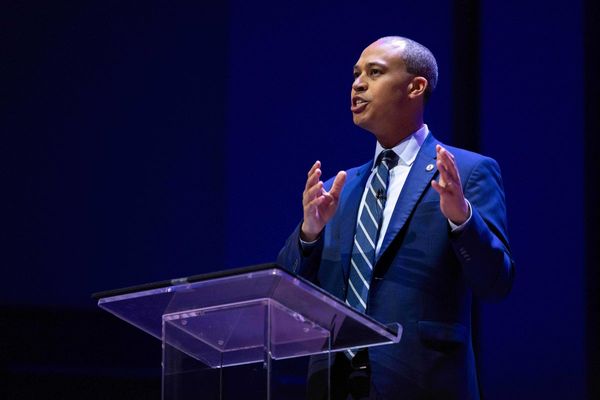
Brian Tseng, the host of the Night Night Show and one of the founders of the Two Three Comedy Club in Taipei, has found himself embroiled in controversy once again.
Tsent’s latest incident broke out after campaign expenditures for the electoral campaigns of President Tsai Ing-wen of the Democratic Progressive Party (DPP) and her opponent Kuomintang (KMT) candidate Han Kuo-yu were released, revealing that Tseng and the Night Night Show accepted NT$130,000 from the Tsai campaign and NT$315,000 from the Han campaign for their appearances on the show.
The controversy has occurred on several levels. First, many fans are upset at Tseng for accepting money from political candidates in return for exposure. Others have pointed to the price difference between the candidates as suggesting a bias favoring Tsai.
However, much criticism centers on Tseng’s choice to allow Han, in particular, to appear on his show in return for money. Although Han’s appearance on the Night Night Show raised eyebrows at the time as his right-leaning, China-centric political orientation is seemingly at odds with Tseng and his audience’s values, criticism was subdued until the appearance fee was disclosed.
Brian Tseng as part of a trend of young, pan-green entertainers
Tseng has made a name for himself as an innovator in American-style stand-up comedy in Taiwan. The Night Night Show is Taiwan’s first satirical late-night comedy show and the Two Three Comedy Club is Taipei’s first bilingual comedy club.
But his rise to fame has been checked by various controversies. Last year, he made light of Cheng Nan-jung (鄭南榕), a persecuted Taiwanese pro-democracy activist who died of self-immolation. In March, he joked about marital rape, and made an apology that was widely criticized.
Tseng originally became known in the Taiwanese media landscape as a scriptwriter and producer for Taiwan Bar. Taiwan Bar, which debuted in September 2014, produced animated shorts detailing various aspects of Taiwanese political and cultural history, before expanding to become something of an IP brand. Taiwan Bar was highly popular among young people in an environment strongly shaped by the aftermath of the March 2014 Sunflower Movement.

Tseng signaled pan-Green leanings early on with the Night Night Show, visible in his choice of guests during the program’s first season. Early guests included Huang Kuo-chang of the New Power Party (NPP), a former Sunflower Movement leader, Taiwan’s Premier Su Tseng-chang of the DPP, and YouTuber Ray Du, who recently helped organize a crowdfunding campaign to take out an ad in the New York Times highlighting Taiwan’s exclusion from the WHO.
Skits by Tseng on the Night Night Show also frequently centered issues regarding Taiwan’s sovereignty. For example, Tseng released a satirical music video titled “Taiwan” in June mocking Taiwanese singer Fann Liu for an MV titled “China” that expressed pro-China views.
Tseng and the Night Night Show can be understood as part of a trend of unabashedly political, pan-Green streaming programs. Examples include EYECTV, a satirical news program that parodies pan-Blue television programs hosted by YouTuber Retina, or the YouTube program hosted by independent Taipei city councilor Froggy Chiu, who successfully ran for office in 2018 in the Songshan-Xinyi district of Taipei relying solely on online advertisements.
Chiu, Retina, and other political YouTubers even formed a political party, the Unstoppable Joy Party, in 2019. The Unstoppable Joy Party is not aimed at seriously competing as a political party, but aims to make comedic programs documenting the legal processes by which one forms and runs a political party, to make this process transparent for average citizens.
Anxiety about entertainers' sincerity — and Taiwan's democracy
The outrage against Tseng for accepting money from the Han campaign may be because Tseng’s actions are seen as a betrayal by fans who had thought his political leanings were sincere. It’s a concern that progressive or pan-Green political leanings held by entertainers like Tseng have simply become a shallow form of personal branding, performed to appease their young audience.
Streaming programs have become an increasingly important means for politicians to bid for the support of young people. Both Tsai and Han made appearances with YouTubers and other influencers in 2020 election campaigning, as in Tsai and Han making appearances with gym owner and YouTuber Holger Chen’s live stream show, or with Tsai’s appearances with YouTubers such as Tsai A-ga or Potter King. But as the Tseng controversy suggests, media appearances by politicians on streaming programs could be paid exposure.

In this light, controversy regarding Tseng’s actions also reflects increasing concerns about Taiwanese media outlets accepting money from political parties in return for exposure. Electoral campaigns make major expenditures on advertising, on renting space for billboards, and online advertising. This could be seen as just another ordinary purchase of exposure involved in campaigning for office.
It is easy to forget sometimes that Taiwan has only recently transitioned from its authoritarian period. Vote-buying was then a common practice, and it still occurs in some parts of Taiwan. Anxieties regarding paid exposure for politicians touch on broader fears of the more shameless forms of political corruption.
Likewise, the Chinese government is thought to conduct disinformation campaigns and soft power efforts through streaming programs, paying YouTubers in return for political support. Experts have suggested Chinese disinformation efforts place particular emphasis on targeting Taiwanese YouTubers and influencers at present, as observed in the “#DeclaringMyVotingIntention” campaign that appeared in the lead-up to 2020 elections.It is believed that the Chinese government pays pan-Blue media outlets in return for positive press. In April 2019, the Apple Daily reported that the Want Want Group received over 477 million Chinese yuan — just over NT$2 billion — from the Chinese government between 2017 and 2018.
Tseng has since apologized for his actions. Having already weathered a number of scandals, this most recent affair is unlikely to affect his career. But this larger constellation of issues, from anxiety around the authenticity of entertainers to Taiwan’s history of political corruption, have been brought to the fore by the Tseng.
READ NEXT: The Conflicting Values of Taiwan’s Comedy and Gender Discussions
TNL Editor: Nicholas Haggerty, Daphne K. Lee (@thenewslensintl)
If you enjoyed this article and want to receive more story updates in your news feed, please be sure to follow our Facebook.







